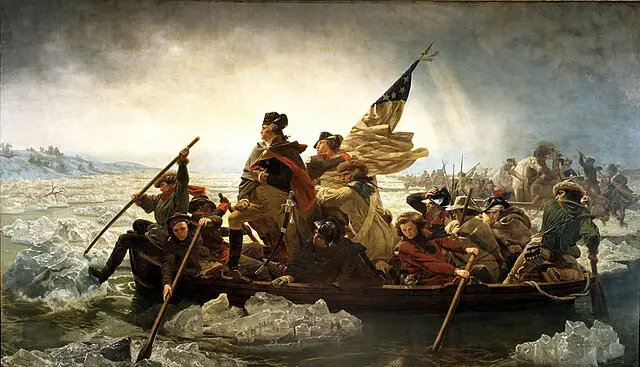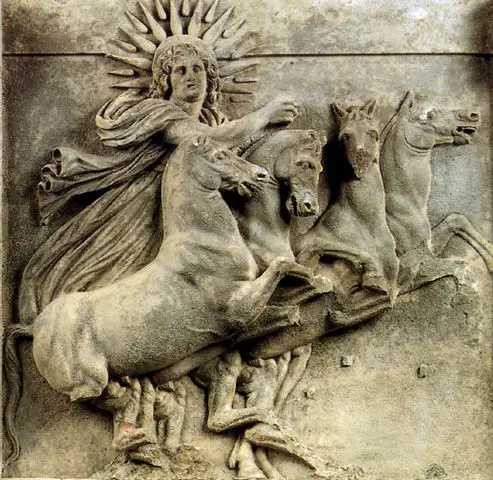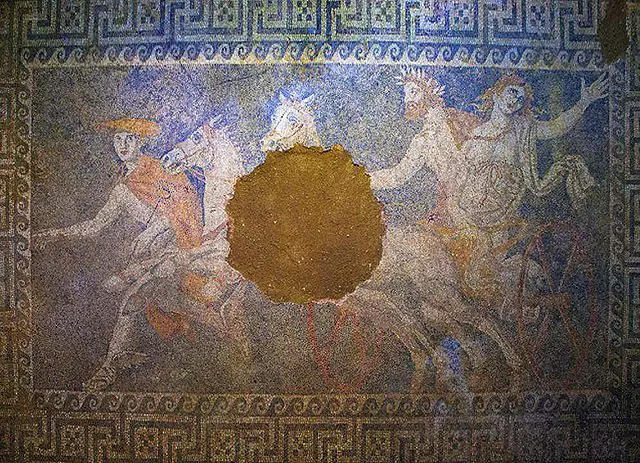| Event Date | 2nd of September, 31 BC |
| Notable Figures Involved | Octavian (Augustus) and Mark Antony/Cleopatra |
| Region of World | Western Greece |
| Further Reading | Augustus: 3 Greatest Accomplishments Of Rome’s First Emperor |
In 31 BC one of the most significant battles in World History would take place, The Battle of Actium. This naval battle included over 600 ships and was the climax of a nearly 10 year long conflict over who should rule the Roman People.
There are 3 reasons why the Battle of Actium is significant to world history. First, the Battle of Actium marks a changing point between the Roman Republic and the Roman Empire. Second, Actium established Rome’s navy as a professional standing military force. Third, the Battle of Actium led to increased commerce and exploration around the world.
Any historian studying the most famous events of world history will often find the Battle of Actium listed under an event that forever changed world power.
Here at The History Ace I strive to publish the best history articles on the internet. If at the end you enjoyed this article then consider subscribing to the free newsletter and sharing around the internet.
Without further ado, here are the 3 reasons why the Battle of Actium in 31 BC is significant to world history.
The Battle Of Actium Marks A Changing Point Between The Roman Republic And The Roman Empire
One of the main reasons that the Battle of Actium is significant to world history is because it marked the change from the Roman Republic to the Roman Empire.
The battle itself was fought between Octavian the heir of Julius Caesar and the combined forces of Mark Antony and Cleopatra.
The winner of this naval battle would come to dominate the entire Roman Republic. The Roman senate and people were divided on both sides of the conflict.
However upon the defeat of Mark Antony Octavian became the sole ruler of the Roman Republic thus creating the Roman Empire. 4 years after winning the Battle of Actium Octavian would be crowned Augustus, the Roman Emperor.
It was this battle that marked the changing point between the Roman Republic and the Roman Empire. As such, this transition of power is one of the main reasons that the Battle of Actium is significant to world history.
Actium Established Rome’s Navy As A Professional Standing Military Force
One of the major reasons that the Battle of Actium is significant to world history is because it cemented the power of the Navy in Rome.
During the Republican era of Rome there were few Naval triumphs that marked the Roman Navy as equivalent to the army.
During most of the history of Rome the Roman Navy was considered a second rate military force. Junior officers who did not come from prestigious families would end up in the Navy.
Further, it was not until the First Punic War between Rome and Carthage in 265 BC that Rome even had a notable sea worthy military ship.
According to Polybius the Romans ‘borrowed’ a design for a military ship by capturing a Carthaginian one. Even then these ships were given to the auxiliary units and officers to command.
Simply put, the Roman Navy before the Battle of Actium was not equipped properly nor was well respected. However, this forever changed after the Battle of Actium.
Augustus over the course of his reign created a standing navy consisting of several warships. These warships served various purposes such as combating piracy, patrolling the frontiers, and engaging hostile fleets in large scale combat.
This formalization of the Roman Navy remains one of the major reasons that the Battle of Actium is so significant to world history.
The Battle Of Actium Lead To Increased Commerce And Exploration Around The World
Another one of the major reasons that the Battle of Actium is significant to world history was because of the development of trade.
After Actium across the Empire trade flourished. New ports in the Eastern provinces were being built and the Navy had to provide safety. Initially Augustus had planned to build a naval fleet to enter into the Indian Ocean but this proved too costly.
However, in modern Germany the Battle of Actium led to the Roman Navy being used for exploration. Much of what we know about ancient Germany comes from this.
Up and down the Rhine river ships from Actium would explore. This led to the creation of several forts and settlements all the way up until modern Denmark.
This massive increase in trade and exploration was a direct result of the Battle of Actium. Today it has forever changed world history because of the discoveries that were made.
Several historians would travel to these newly discovered lands and record what they found. From this we gained knowledge of the Frisii and Chauci tribes of Northern Germany.
So pervasive was this exploration and trade that upon Augustus tomb it reads “My fleet sailed from the mouth of the Rhine eastward as far as the lands of the Cimbri to which, up to that time, no Roman had ever penetrated either by land or by sea.”
As such one of the main reasons that the Battle of Actium is significant to world history was the increase in exploration and trade.
Conclusion
There you have it, an entire article that goes over the 3 reasons why the Battle of Actium is significant to world history.
There are a few events that forever alter the course of history. Another Naval battle the changed world power can be seen in the Sinking of the Spanish Armada in 1588.
I hope you enjoyed this article. Here at The History Ace I strive to publish the best history articles on the internet. Feel free to sign up for the free newsletter and share around.
Further, you can check out some of the other articles below.
-
How The American Revolution Changed The World

Here is how the American Revolution changed the world. Many people are not aware of just how important this event actually was.
-
Why The Roman People Loved Chariot Racing

Why did the Roman people love chariot racing? Well it all comes down to these 3 reasons.
-
The Design and Color of Roman Chariots

What was the design and color of Roman Chariots? Were they faster or slower then normal chariots? Well here is everything!
Sincerely,
Nick